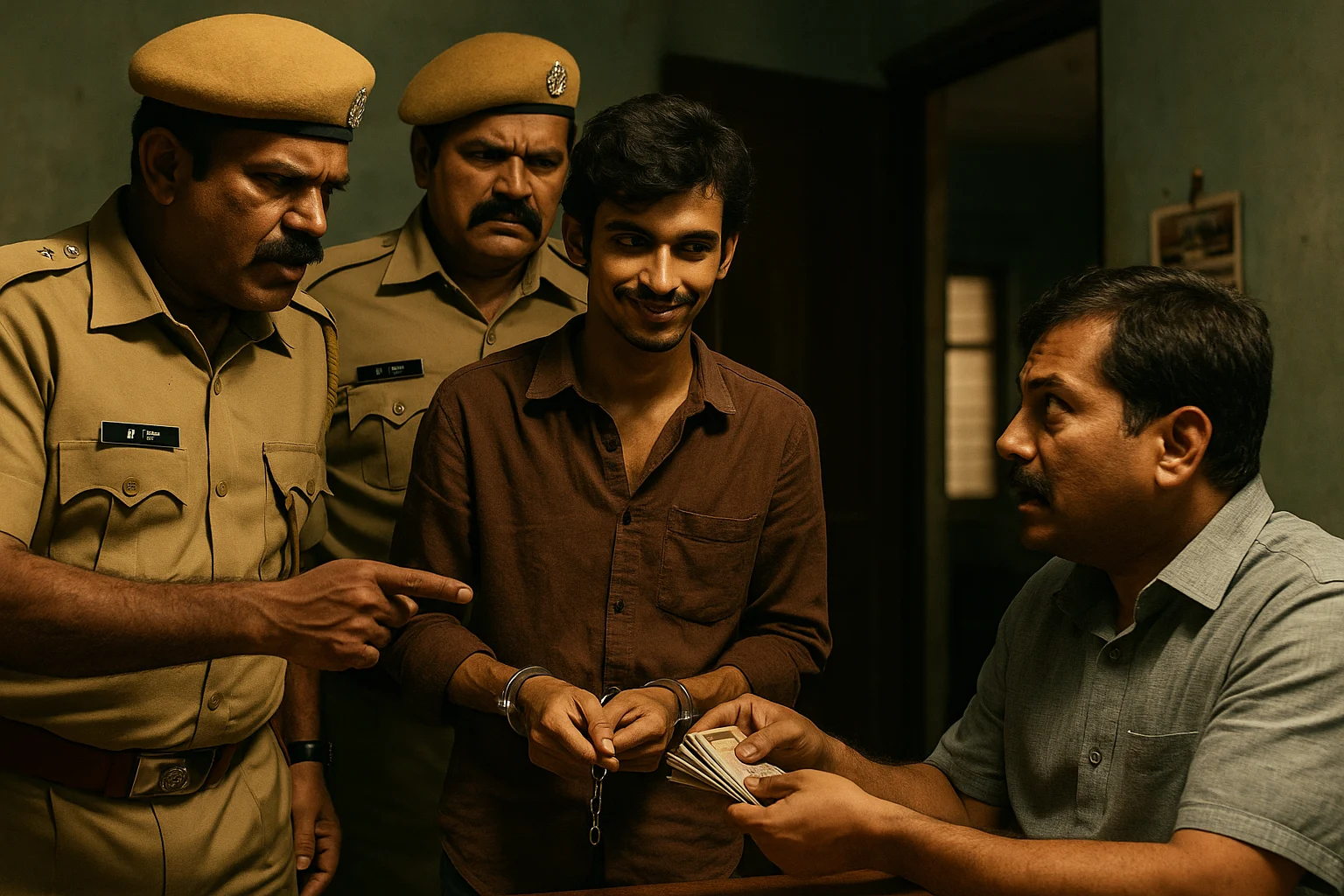The Silver Tongue in a Rough World
Rajeev Tripathi was not just any office assistant—he was a legend in convincing people to do things they never planned. In the bustling Mumbai corporate maze, he had built a parallel career: scamming. With his innocent smile, carefully oiled hair, and honeyed voice, Rajeev could talk a stone into buying a fan.
He didn’t start out intending to cheat people. At least that’s what he told himself. “Just a little advance,” he’d say. “For paperwork. Promise I’ll get your loan approved in a day.” Or, “Just ₹5,000 to reserve that new government flat—I have inside connections.” Each lie was dressed in confidence and sugar.
His employer, Mr. Manohar Sharma, ran a mid-sized logistics firm and tolerated Rajeev for years—despite the endless complaints from vendors, job applicants, and even staff. “Sir, your man promised me a job for money!” one would shout at the reception. “Sir, he said he’ll help me get into the driver’s union,” another would yell. Sharma always bailed Rajeev out.
But Sharma was no fool. “Rajeev,” he often warned, “your tongue runs faster than your karma. One day, someone won’t just complain. They’ll destroy you.”
Rajeev laughed it off. “Boss, people forget. Mumbai is a fast city. Nobody remembers small scams.”

The Scam Gets Bigger
Rajeev, now nearing 40, saw no reason to change. If anything, he upgraded his cons. He began promising warehouse tenders, import licenses, and even government subsidies.
One of his biggest ‘clients’ was a gullible small-time exporter named Ramesh Patel. Ramesh handed over ₹2.5 lakhs over three months on Rajeev’s promise of getting him a transport subsidy grant. All fake. When Ramesh’s calls went unanswered, and his factory faced closure, desperation turned to rage.
Rajeev brushed it off. “It’s not like he gave me a written agreement,” he told a colleague smugly.
The Day of Reckoning
On a humid Tuesday afternoon, Rajeev reached the office wearing his usual half-sleeve shirt and fake gold watch, sipping cutting chai from the tapri. Something felt off. No chaiwala nod. No auto guy smile. Even the peon looked through him.
At 10:45 AM, two plainclothes policemen entered the reception.
“Rajeev Tripathi?”
“Yes, who’s asking?”
“You’re under arrest. Section 420. Cheating. Multiple FIRs filed. Please come with us.”
“What? Me? Sir, there must be a misunderstanding!” he said, already sweating more than the weather demanded.
But it wasn’t just one FIR. Ramesh Patel had gathered four others—one a widow whose son Rajeev had promised a railway job. They had formed a WhatsApp group called “Justice for Fraud Victims” and submitted a joint complaint.

Jail Is No Corporate Cabin
Rajeev was thrown into the Byculla lock-up. The shock was total. His slick words meant nothing to the constables. His calls went unanswered. His friends ghosted him. His family—tired of his antics—refused to post bail.
He looked around the cell. “This place smells like betrayal,” he mumbled.
“Welcome to reality,” said a cellmate, chewing gutkha. “What did you do, baba?”
“Spoke too sweet, I guess,” Rajeev replied.
Even Sharma didn’t come. He told the police, “I’ve always told him to stay clean. I don’t support this.”
The same Sharma who once shielded him now had a statement ready for the press: “Our company does not endorse any illegal activity. Mr. Tripathi acted independently and dishonestly.”
Rajeev couldn’t believe it. “No one is saving me?” he whispered in the dark.

The Legal Drama
Court dates followed. Each time, victims stood united. Rajeev tried every trick—pretending health issues, submitting apology letters, even fake tears—but the judge had heard it all.
Finally, after three months in judicial custody, he was offered bail on one condition: Full repayment or he’d face trial.
With no support and no savings (he lived lavishly, remember?), Rajeev had to beg his sister in Nagpur for help. She sent ₹50,000—not from love, but from shame.
“I hope you learn,” she said coldly over the phone.

The Lonely Exit
Rajeev walked out of jail thinner, quieter, and less shiny. He returned to his chawl only to find someone else living in his room. The landlord had thrown his things out. A few old clothes and a rusted lunchbox were all that remained.
He walked the streets, remembering each face he conned. Each lie. Each ignored warning.
A child selling pens approached him. “Bhaiya, ek le lo na.”
He looked at the boy. “Kya price hai?”
“Jo aapka man kare.”
Rajeev took out ₹10—his only money—and bought one.
He sat on the footpath, holding the pen. A tool of truth, or deception?
For the first time in years, he wrote in a borrowed notebook:
“I sold words like dreams and now sleep on regret. I hope someone forgives me. If not others, at least me.”

The Final Visit
A month later, Rajeev visited Sharma’s office—now fully shaved, neatly dressed, carrying a printed apology.
Sharma looked at him, surprised but unmoved.
“I don’t want a job,” Rajeev said. “Just wanted to say… you were right.”
Sharma paused. “Are you really done conning?”
Rajeev nodded. “Yes. Now I sell truth. Pens and diaries at railway stations.”
Sharma gave a faint smile. “Better business, that.”

Moral of the Story:
You can fool people with your words, but truth doesn’t need to shout—it always catches up.
Receive Stories and Articles in your Inbox!
We won’t send any promotional or spam emails.




















































